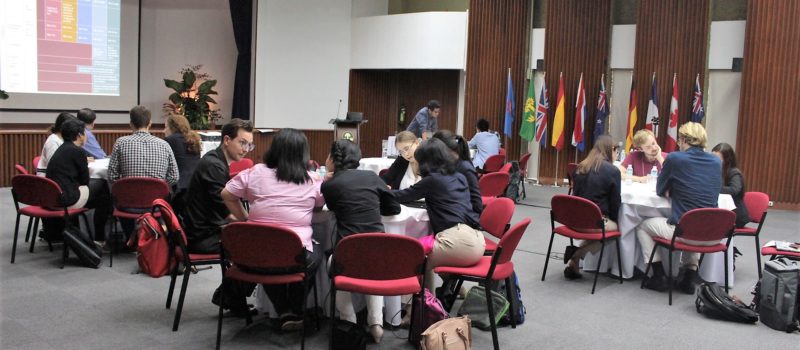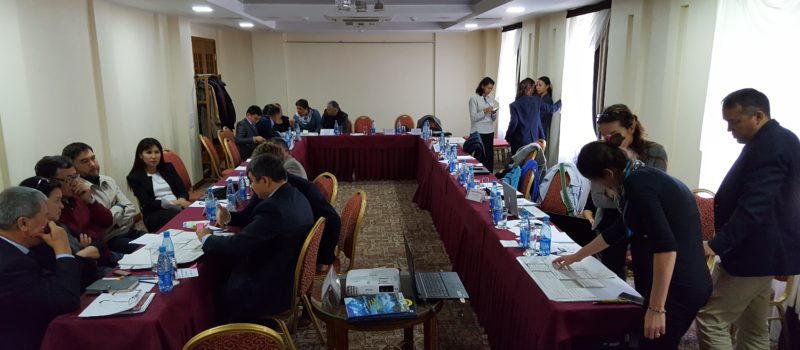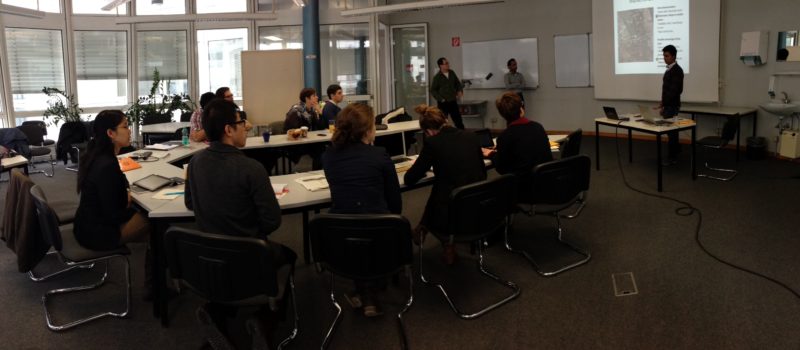Workshops
ME Society has extensive experience in establishing training formats for various target audiences, ranging from workshops for donors, microfinance institutions, manufacturers and entrepreneurs in the energy field to courses and seminars for university students.
MES organizes workshops with the main objective to establish a platform for knowledge exchange as well as strengthening existing or potential collaborations between Germany and other countries in the field of climate change, bottom-up global energy transition, energy access and energy transition metrics, human-centred product design and social business development.
Currently, our offered workshops include:
Energise-BoP
The E-BoP (“Energise the base of the pyramid”) workshop enables energy entrepreneurs such as equipment manufacturers and energy service providers to develop or improve their business models, products, and services targeting low-income customers and/or off-grid areas.
Further information about this workshop can be found here.
(Link führt ins Lehre)
| Type | Workshop |
| Usual target Groups | Equipment manufacturers and energy service providers, energy entrepreneurs |
| Duration range | From 2 hours to 1.5 days |
| Previous Experiences | Workshops held in Egypt, Turkey, Ghana, India and in the HQ’s in Berlin |
| Learning Outcomes | Base of the Pyramid ; low-income segments; business models for off-grid areas; business plan ; energy solutions ; customers relationship |
| Usual Number of Participants | 12- 30 |
Energy Product-Service Systems
With the Energy Product-Service Systems (E-PSS) Toolset MEI has developed a comprehensive collection of design guidelines for E-PSS targeting manufacturers that wish to innovate and improve their products and services. For this purpose, MEI has adapted methodological approaches from the scientific PSS community to the specific requirements of rural electrification projects.
The EPSS introduces a comprehensive and scientifically-grounded collection of design guidelines for E-PSS for rural electrification projects. It enables its participants to practically implement the E-PSS toolset to design flexible, sustainable, and profitable services.
Further information about this workshop can be found here.
| Type | Workshop |
| Usual target Groups | Energy product and project developers, system integrators, distributors, and manufacturers |
| Duration range | 4 to 5 days (flexible) |
| Previous Experiences | German firms working in the field of rural electrification have already taken the workshop, e.g. Mobisol, Inensus, BAE Batteries or Procon |
| Learning Outcomes | PSS; rural electrification; energy product-service client offering |
| Usual Number of Participants | 12-30 |
Microfinance and Energy Inclusion
The Workshop aimes at developing business models in the microfinance and energy sectors of emerging markets, addressing the challenges of adapting energy products and services to the requirements of microfinance institutions (MFIs) working at the BoP.
Further information about this workshop can be found here.
| Type | Workshop |
| Usual target Groups | MFI and bank networks |
| Duration range | 0.5 – 2 days |
| Previous Experiences | Side event in several conferences (e.g. Intersolar Europe 2012) |
| Learning Outcomes | Business models; energy solutions; BoP; stakeholders relations customers relations; knowledge management |
| Usual Number of Participants | 10 – 15 |
Introduction to Energy Efficiency in the Housing Sector
This training aims to introduce finance organizations involved in the development and roll-out of energy efficiency (EE) housing loans into the basics of energy efficiency.
Topics covered include EE in the housing sector, measures and equipment that are considered energy efficient, as well as tools for simplified energy audit of clients´ dwellings.
Further information about this workshop can be found here.
| Type | Workshop |
| Usual target Groups | Monetary financial institutions and Banks, monetary financial institutions and Bank networks |
| Duration range | From 2 hours to 1.5 days |
| Previous Experiences | Agence Française de Développement Social & Energy Efficiency Housing Program in Armenia |
| Learning Outcomes | Energy efficiency; energy loans |
| Usual Number of Participants | 5-15 |




